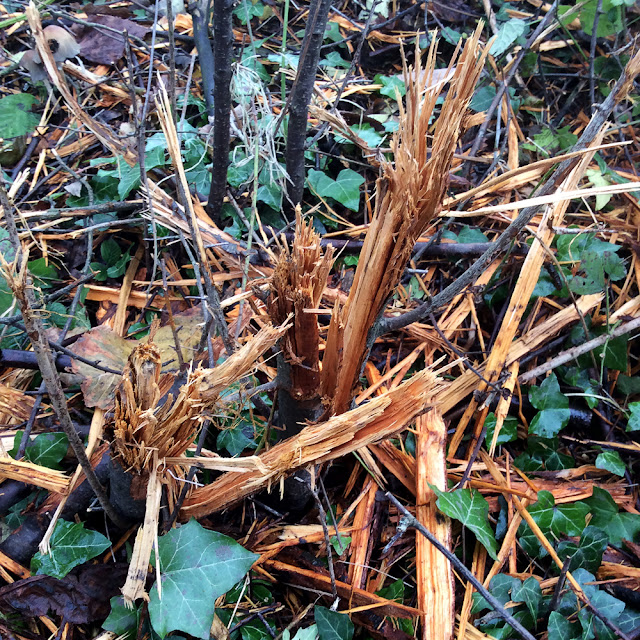6 December 2015
Eco Illiteracy
The term ‘ecoliteracy’ is threaded through the nature conservation discussion. Many grant applications site the improvement of eco literacy as justification for their projects. Wildlife charities say the environment is being depleted because the public are not ecoliterate.
Too true I say. Look at this destructive example of hedge management I came across this Sunday walk. Looking at the savaged stumps do you think any care was taken? Forethought? Horticultural training? Awareness of consequences?
These are blackthorn. I picked sloes from them in October, flung them in a jar of gin and am saving the resulting lusciousness to welcome in Christmas. But it’s not the deprivation of next year’s seasonal alcohol that I’m angry about, but the evident aggression and speed of the hedge cutting. Maybe, though I doubt it, the blackthorn was growing over the path, and its nasty thorns were injuring people. Maybe it did need managing. Then why has it not be pruned or coppiced? I’m guessing it is because the person who did it was eco illiterate. He hadn’t been taught. Taught not only the practical skill of cutting back hedges (surely a noble skill a man would be proud to have?), but also the ecological consequences. I will have to wait for my next lot of sloes, but so will the birds and insects, the creatures that need the plants.
It is not simply a case of the lack of skill and knowledge, but it seems to me, a sign of disrespect. This is where ‘ecoliteracy’ becomes more of a philosophical or moral term. And here perhaps is the problem. It is not a matter of telling junior school children how bees make honey, or high school pupils the chemistry of photosynthesis. Nor will expensive glossy BBC nature documentaries, or cosy Springwatch programmes (though I think Chris Packham is a darling) truly increase public awareness of the needs of wildlife, in other words how the world works.
To stop destroying nature people must also be emotionally and socially literate. Empathy and an understanding that we are a part of the world, not the lords of it, would change our relationship with nature, so that our actions become ones based on nurturance and tolerance.
Having said all this I don't want to be a finger-wagging puritan. It is easy to point out mistakes and give the impression you don't suffer from the same failure. In this spirit I confess to an embarrassing mistake in my recent post 'Rivers'. I am, dear reader, eco illiterate. I will stump up a coffee and danish to anyone who spots it.

